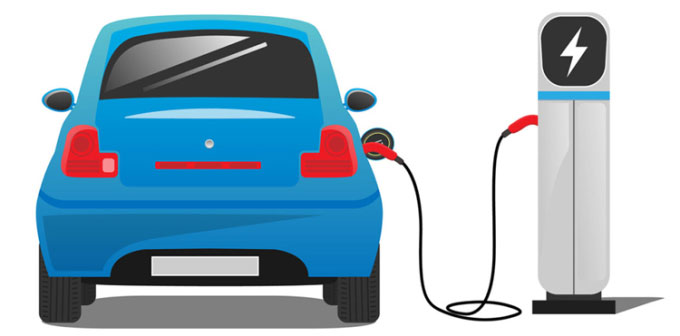Scientists Enhance Anode Made from Graphite in Lithium-Ion Batteries, Shortening Charging Time.
A team of experts from various research institutes in China has accelerated the charging speed of lithium-ion batteries by adding a copper coating and nano wires to the anode, as reported by Techxplore on April 28. The new research was published in the journal Science Advances.

Illustration of an electric vehicle charging. (Image: iStock)
Analysts believe that one of the reasons hindering the widespread transition from gasoline vehicles to electric ones is the charging time. For instance, it can take nearly an hour for an electric vehicle to charge from 40% to 80%.
One of the main obstacles to increasing charging speed is the anode of the battery. Most anodes are made from graphite and are manufactured into a disordered mixture. The research team pointed out that this is not an efficient way to conduct electricity. They also noted that besides the arrangement of materials inside, the size of the gaps between them is also a significant issue.
To address this, the experts first ran theoretical models to optimize the spatial distribution of particles of different sizes and the porosity of the electrodes. They then applied the information obtained from the model to modify the traditional graphite anode. The scientists coated the anode with copper and then added copper nano wires to the electrode mixture. They continued by heating and cooling the anode, compressing the mixture into a more ordered material.
The experts installed the new anode into a standard lithium-ion battery and then measured the required charging time. As a result, they were able to charge the battery to 60% in just 5.6 minutes and to 80% in 11.4 minutes. The research team did not test the time to fully charge to 100% as this is not recommended for such batteries. They also have not disclosed how much adding copper to the anode could increase the battery’s cost.


















































